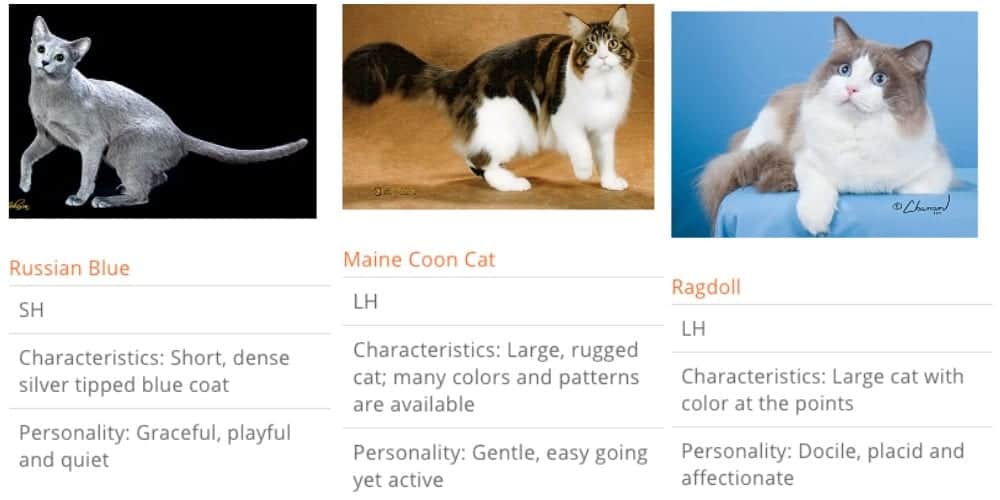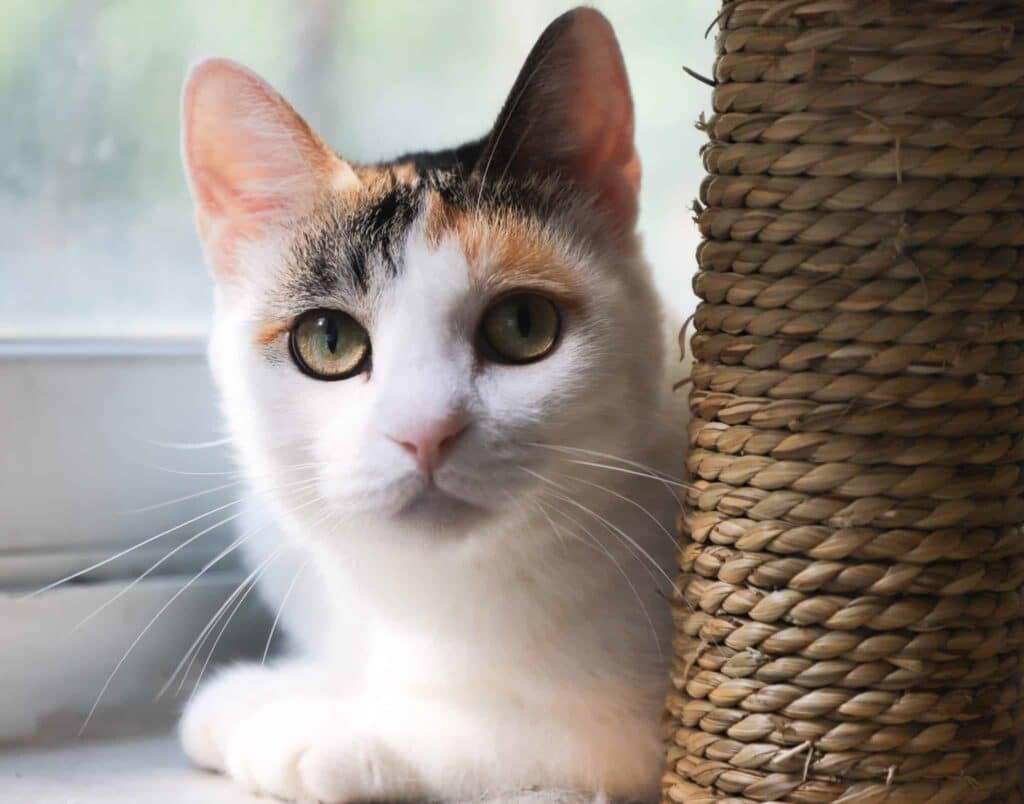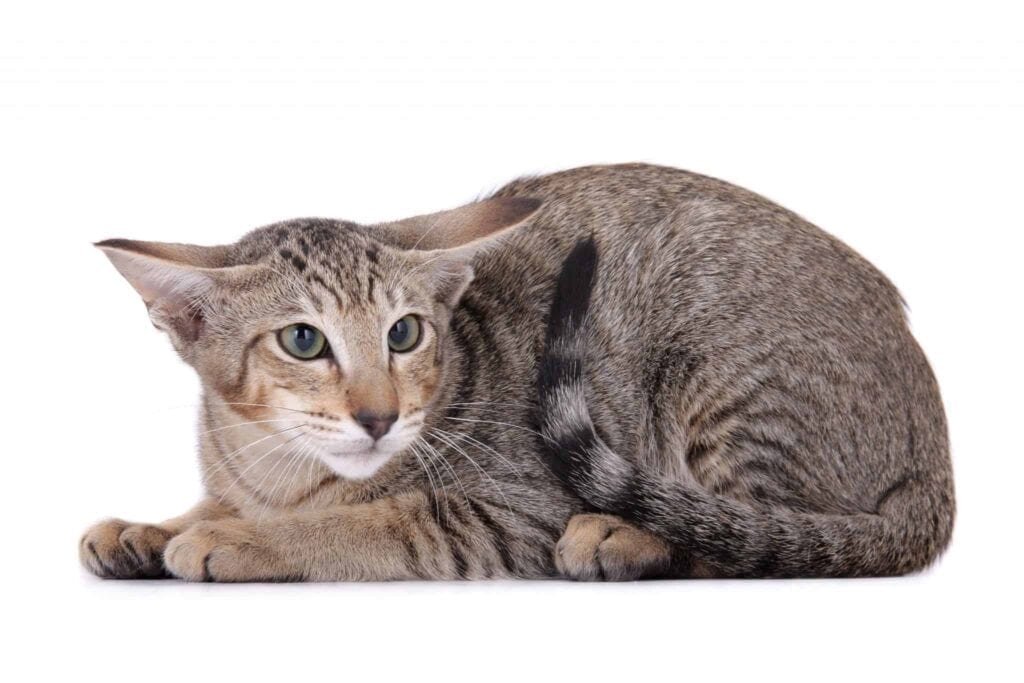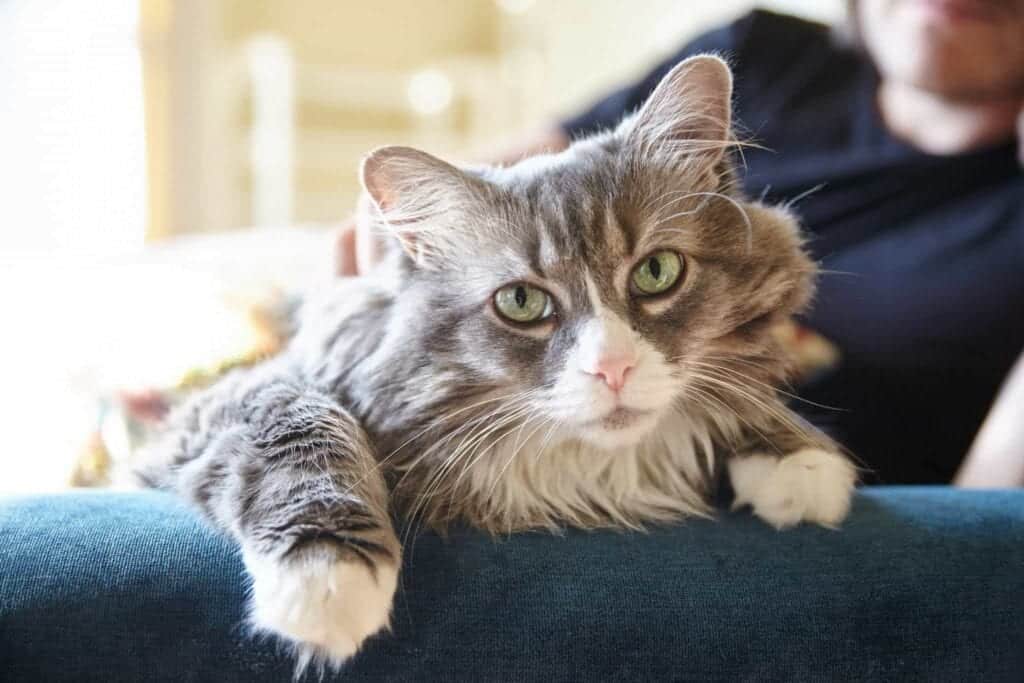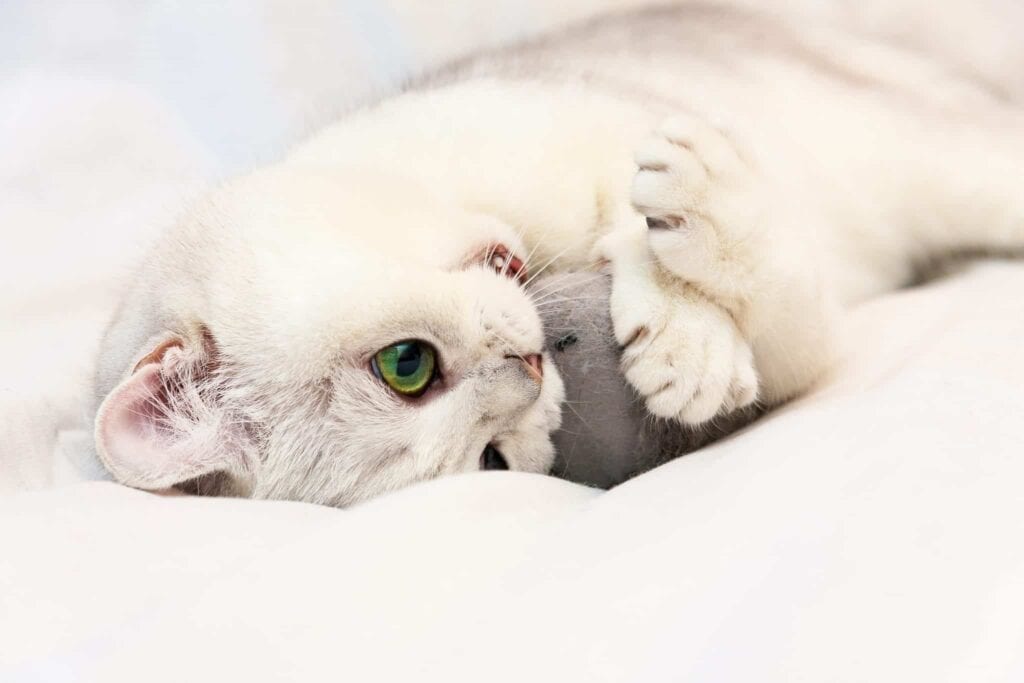Cats are always unique, with no two ever being truly identical. But we can say, there are cats that act similarly to other cats, right? Surely there are cat personality types that can be eerily similar.
While many of us have just your regular old rescue cat, the Cat Fanciers’ Association does have a breed personality and characteristics chart cat owners can reference. Many of us don’t know our cat’s exact lineage/breed, but should you have a purebred cat, that chart could ring true for you. But even so, it seems that cats are known to continually defy stereotypes surrounding them. Cats will be cats, after all!
A few samples of breed personalities and characteristics per the CFA:
So, for us who don’t know our cat’s exact breed, are there certain personality types that our cats can have? We live in a day and age where people often label their own personality types, so I suppose it’s not too unrealistic that cats can have specific personality types, too. (For a comprehensive cat breed overview, check out my friend’s site AnimalsA2Z.)
Dr. Lauren Finka, postdoctoral researcher in animal welfare in Nottingham Trent University’s School of Animal, Rural and Environmental Sciences, has studied cats for many years. And a few years ago, she hypothesized and revealed that cats have 5 specific personality types. And what’s even more interesting is that just recently she revealed that copy cats are, in fact, a real thing as cats were discovered to copy their owner’s behavior.
For the personality type study, Dr. Finka closely examined the behavior of 200 felines. And from her study, she presented to the world that cats have 5 exact personalities: Human Cat, Hunter Cat, Cats’ Cat, Cantankerous Cat and Inquisitive Cat.
But what exactly affects a cat to determine their personality type? It appears that “the ranging personalities are caused by a complex interaction between each cat’s genetics and their experiences during development and in adulthood.”
So, what exactly do these 5 cat personality types mean?
Here goes…
- The Human Cat is generally happy to share your home, your life and often your personal space
- The Hunter Cat is the most feral of the personalities, regularly interacting with realistic cat toys and showing signs of an expert hunter
- You can identify a Cat’s Cat through its willingness to play with and groom its furry siblings, touching noses and rubbing up against each other
- The Cantankerous Cat is more easily frustrated than his four counterparts and can be less tolerant to being handled, due to being quite sensitive to touch, their environment and being on high alert
- The Inquisitive Cat can be a keen investigator, sniffing around anything and anyone unfamiliar
More on each of the 5 cat personality types:
Human Cat
- Shows love often, particularly by way of head bunting
- Fans of human touch, needing, and reminding their humans that their presence is preferred
- Attached to their humans, craves the desire to be near—or better yet, on you
- Enjoys attention and affection from humans
Hunter Cat
- Easily identified through their specific interactions with realistic cat toys
- Prefers to clasp toys in teeth while frantically bunny kicking the said toy
- They are adventurous felines, who prefer a home with plenty of outdoor rural space
- Advocates of the chase, exploring, and pouncing
Cat’s Cat
- Develops positive relationships with other felines, doesn’t feel easily threatened or overly territorial in the presence of cats in which they do not know
- Likely socialized from a young age, which has helped them to nurture this friendliness towards other felines
- Has a willingness to socialize with other cats, by way of grooming, playing, and sleeping together
- Likely to cope/adapt best in a multicat environment
Cantankerous cat
- May appear overly sensitive to touch or stimuli, remaining on high alert of potential threats
- Naturally skittish by nature, does not trust other pets or humans easily
- Less “hands-on” with humans, with a need to move about and explore independently
- Likes to make the first move when it comes to human interaction
Inquisitive cat
- Overly curious by nature, a keen investigator with a strong desire to discover
- It’s believed that this inquisitiveness stems from their DNA in addition to exposure to unfamiliar sounds, sights, and smells as a kitten
- Curious nature can get the best of them, and they might seem a bit mischievous with their need for honoring their overly curious nature
- Welcoming and doesn’t frighten easily, could be a great match for a home with lots of visitors or even as an office cat
And in regards to the study of our cats mirroring our own behavior? Well, it seems that’s not all too surprising according to Dr. Finka: “The majority of owners want to provide the best care for their cats, and these results highlight how influential our own personality can be on the wellbeing of our pets.”
Different from Dr. Finka’s research, scientists out of Australia at the University of South Australia looked at the cat personality traits from an entirely different approach. For their study, they closely monitored 52 different personality characteristics. Their research analyzed 2,802 cats to be exact, and from their research they uncovered the “Feline Five”—which is essentially “a set of five major personality factors.” According to these Australians, the five traits are defined as friendliness, dominance, spontaneity, outgoingness, and skittishness.
PetMD.com shares more on the Five Feline cat personality types:
Skittishness
- Cats with high scores may benefit from having hiding spots at home. You could also consider whether there could be something in your cat’s environment that is stressing your cat.
- Low scores may reflect that your cat is well adjusted to its environment.
Outgoingness
- Cats with high scores may benefit from additional toys and playtime.
- Cats with low scores are uncommon, but may be showing signs of aging or related health issues.
Dominance
- Cats with high scores may experience difficulties being around other cats, both in your home and in your neighborhood.
- Cats with low scores may adjust well to being in multi-cat households.
Spontaneity
- For cats with high scores, consider whether your cat could be reacting to something stressful in its environment.
- Cats with low scores may reflect that they are well adjusted to their environment and may enjoy routine.
Friendliness
- Cats with high scores may adjust well to other people and animals in the home.
- Cats with low scores may have a solitary nature or they may be poorly socialized. If unfriendly behavior is unusual for your cat, it may indicate frustration, pain, or illness.
If you’d like to read more on their research, you can do so here.
Did you find this information interesting? Share this with other cat lovers, and don’t forget to tell us which “type” of cat you have!


